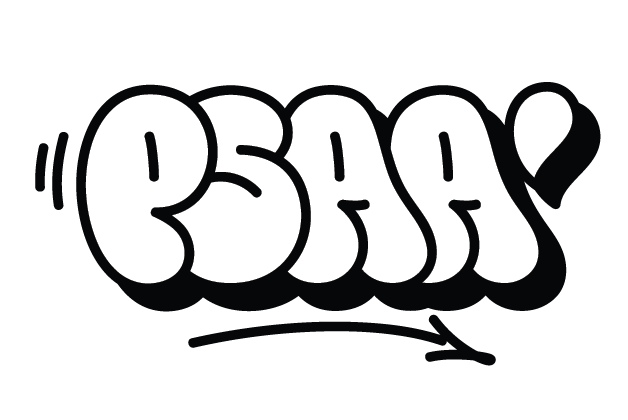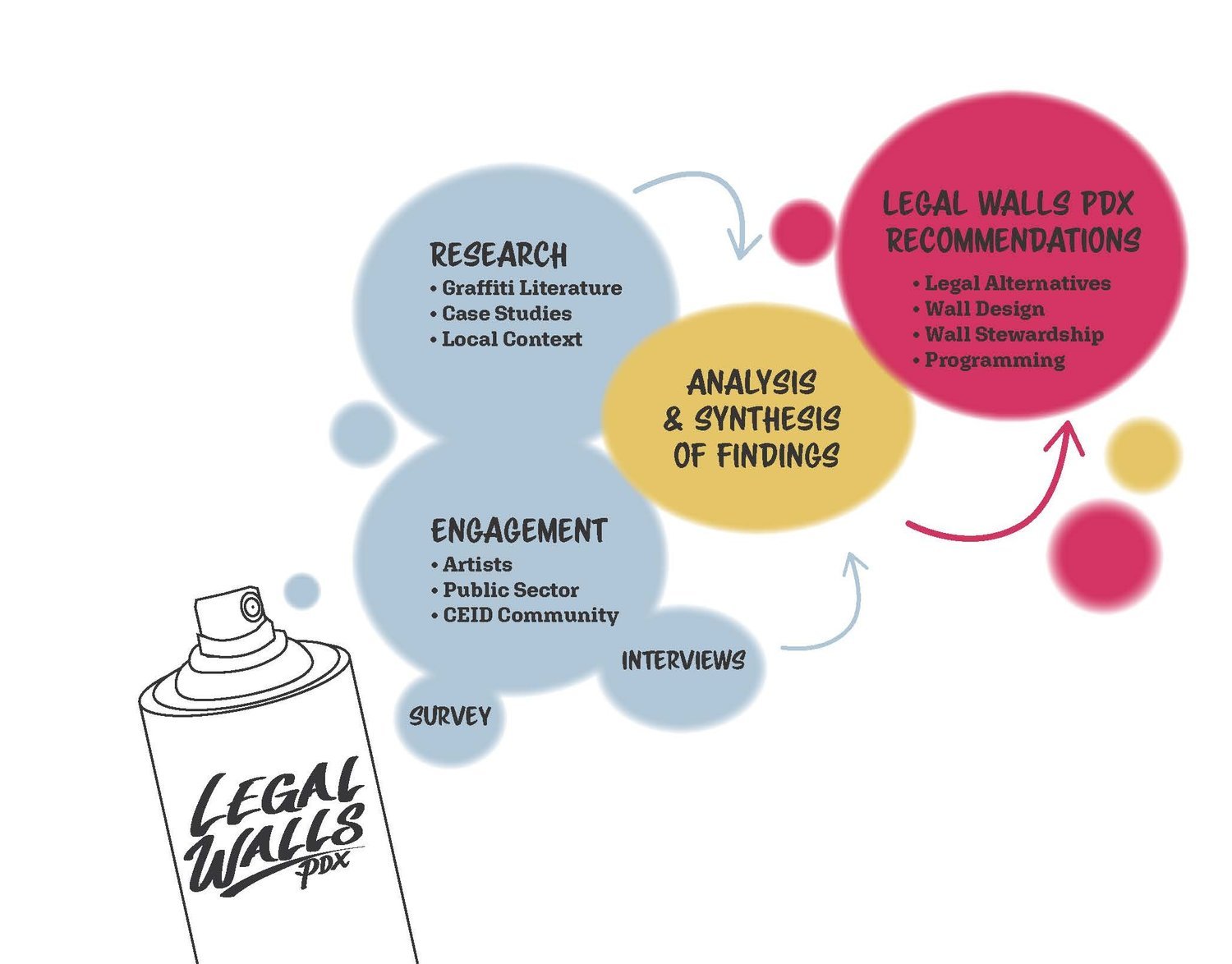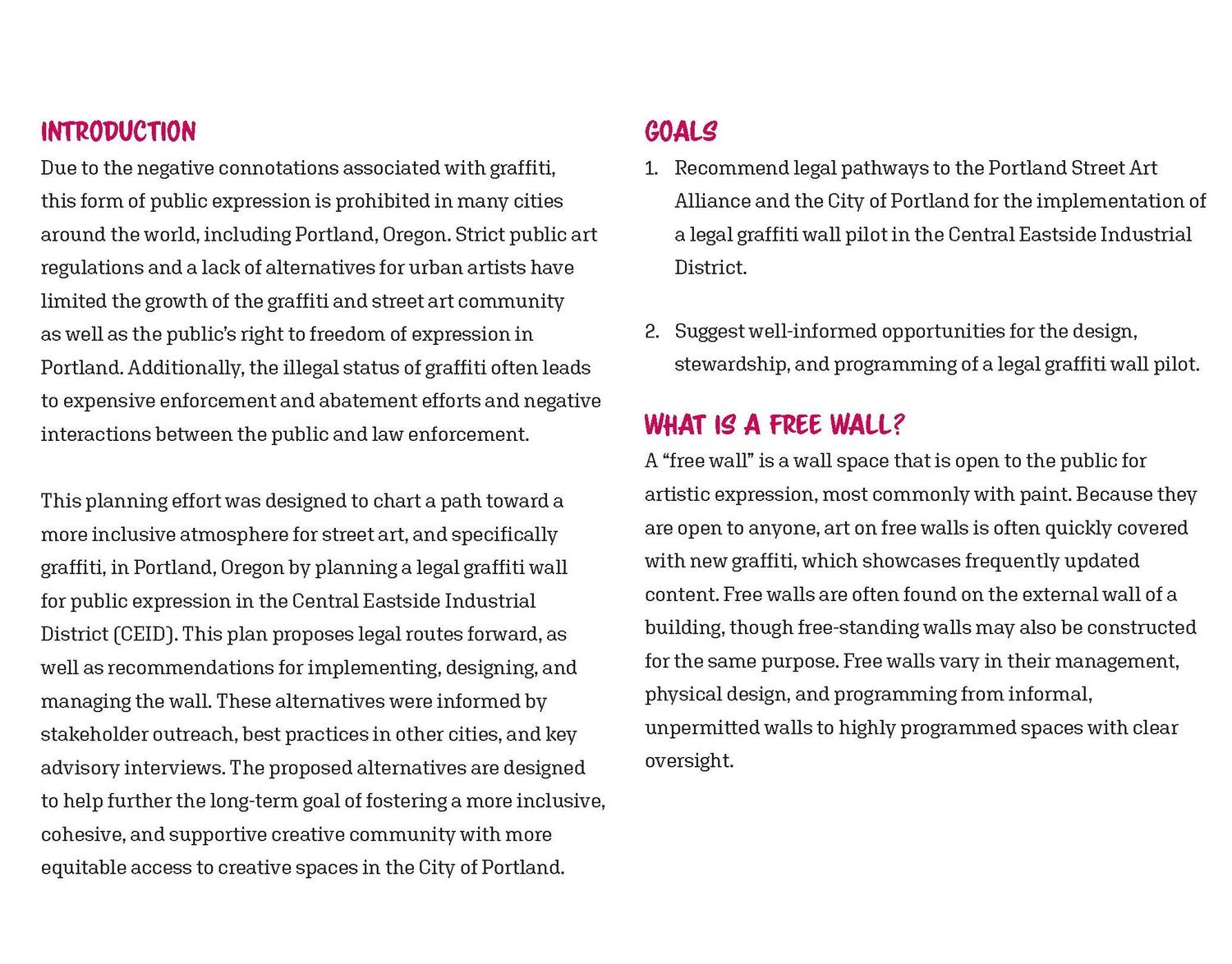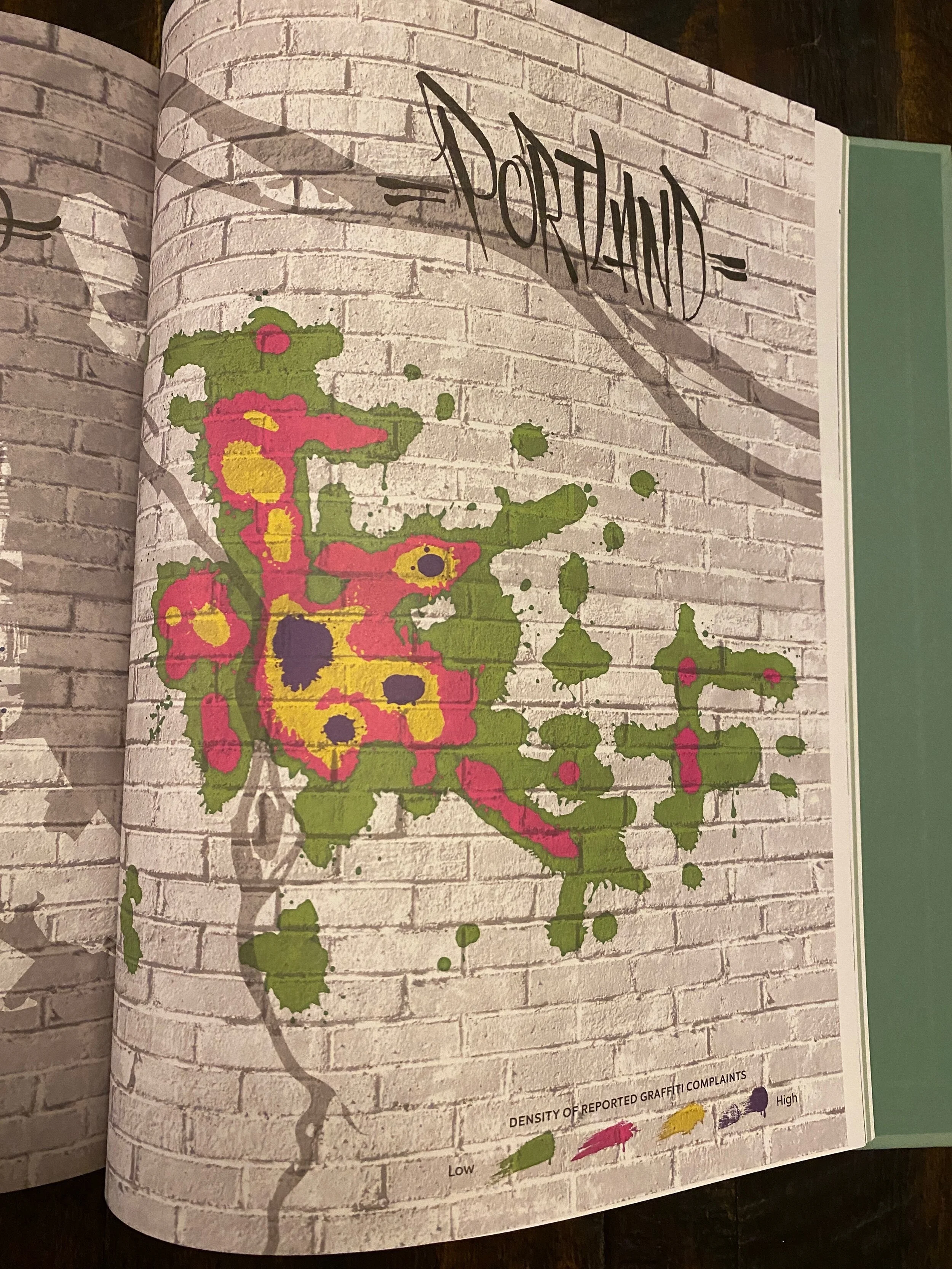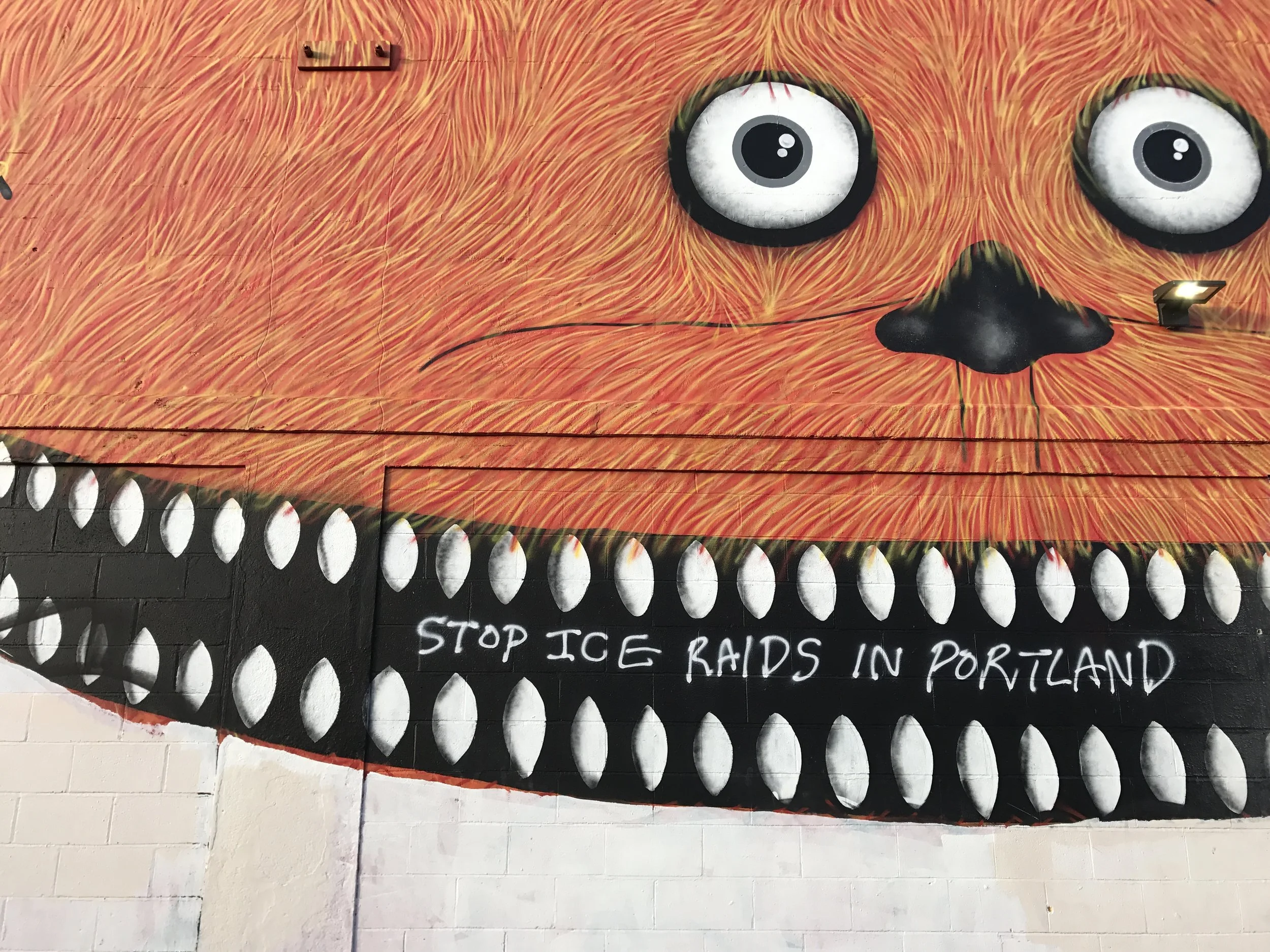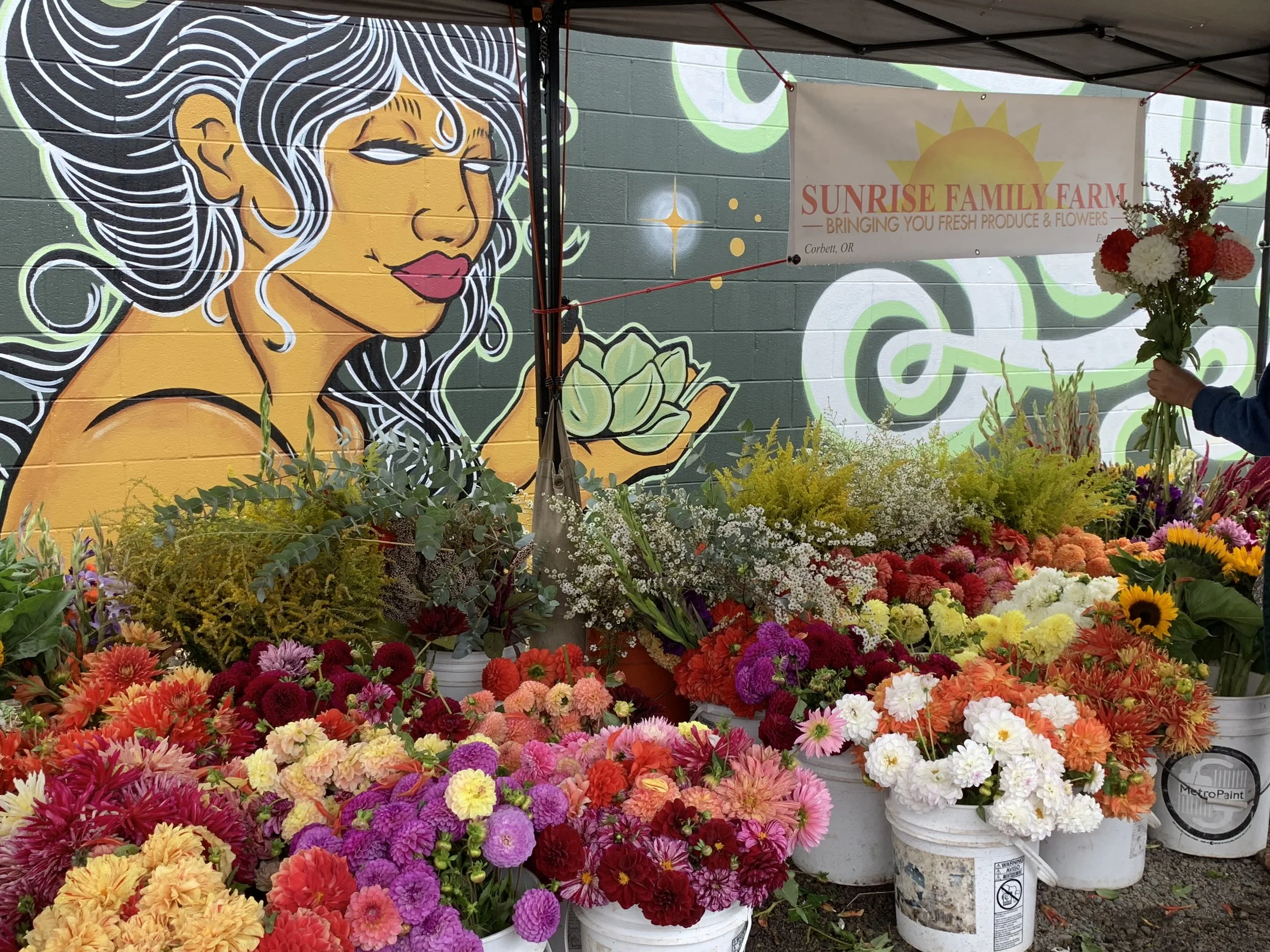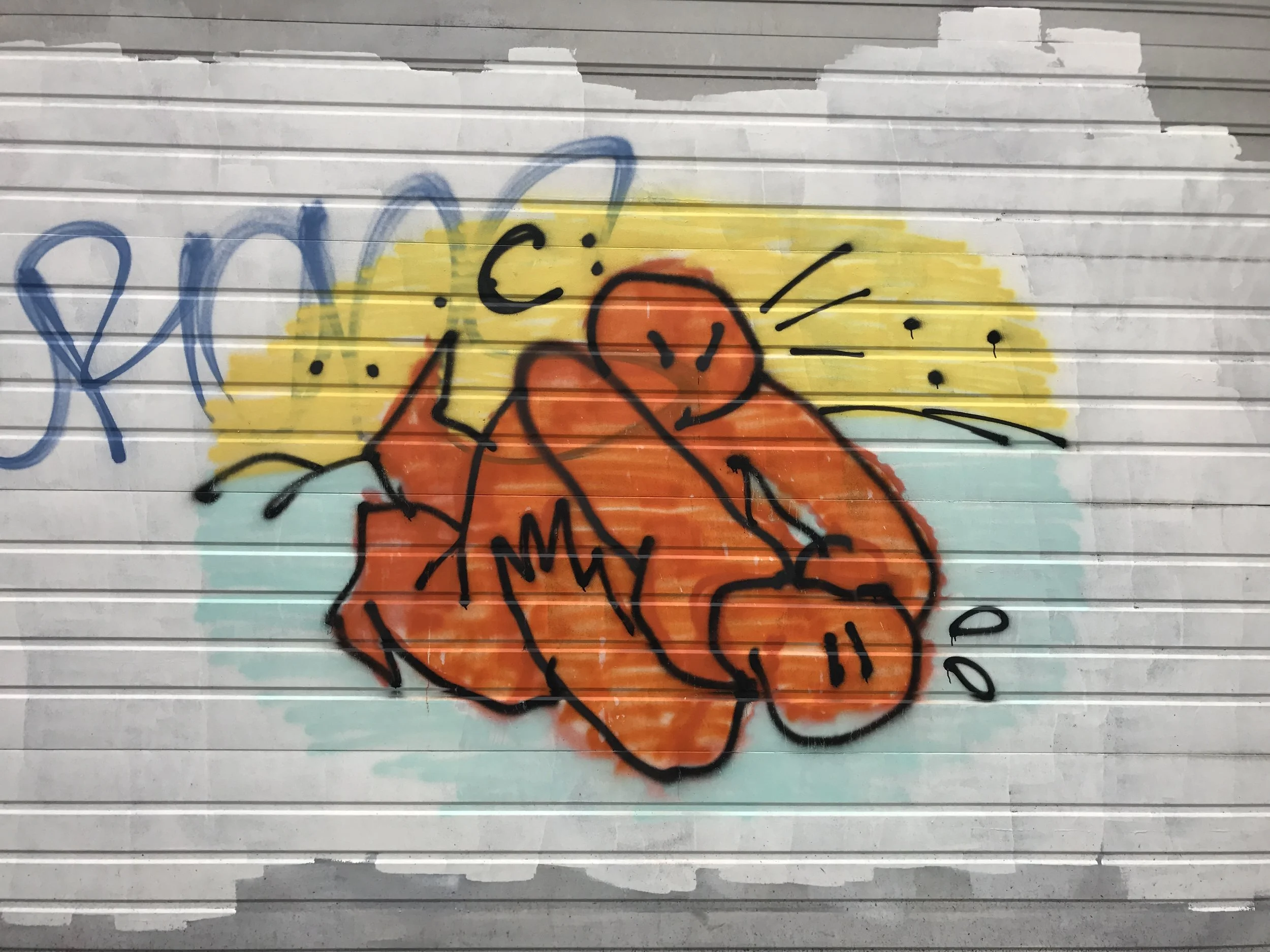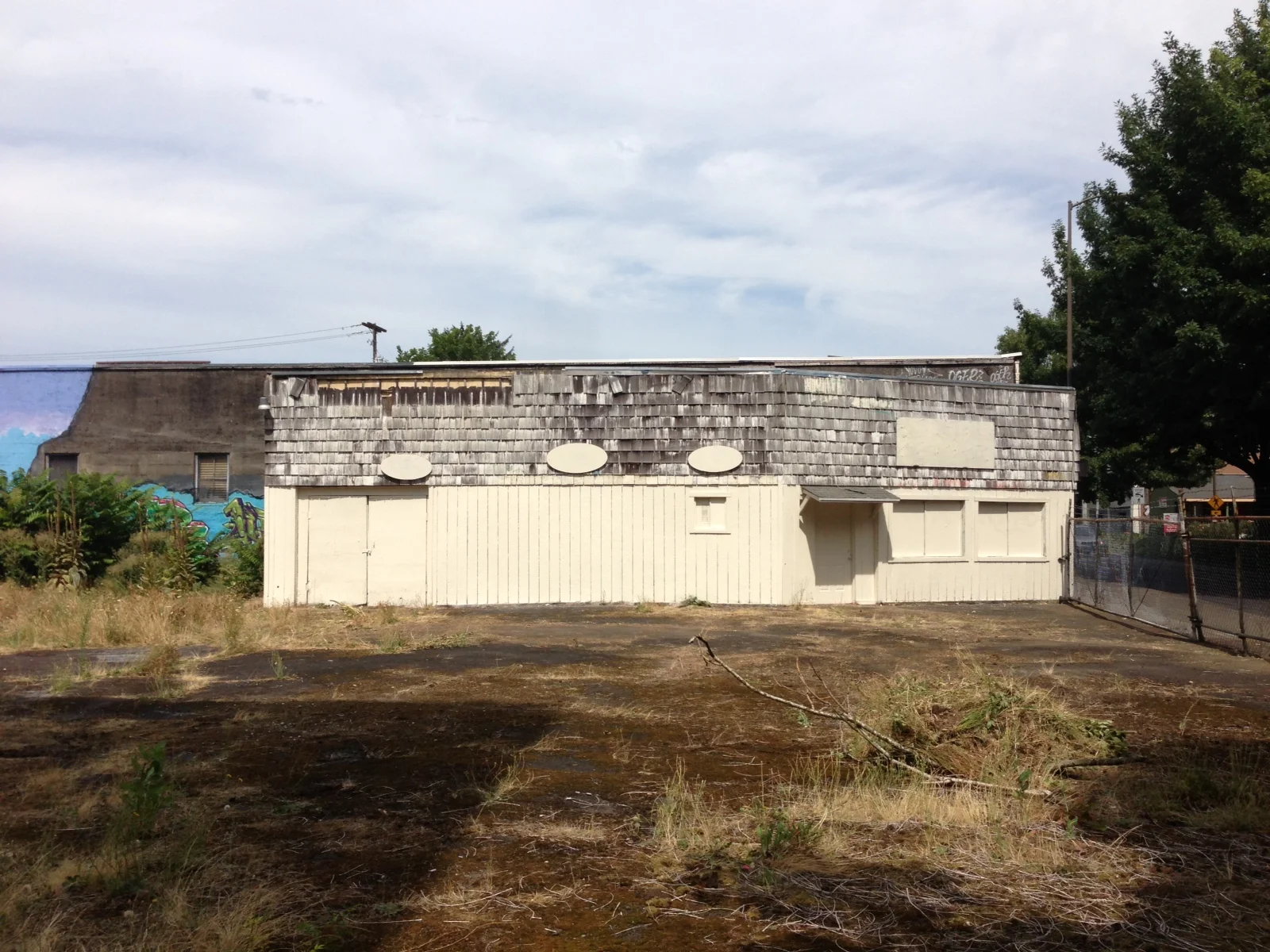ADVOCACY
In 2012, PSAA was founded as a grassroots advocacy community group. Our friends were being pressured and harassed by the police for making art in the street, even when they had permission from owners. Since then, PSAA has been working behind-the-scenes to help advocate for this form of art and shape the future of street and graffiti art in Portland AND BEYOND.
LEGAL WALLS
In 2019, PSAA worked in a collaboration with Portland State University’s Nohad A. Toulan School of Urban Studies & Planning to develop a Legal Walls proposal to go before the Portland Council for city-wide approval in August 2019. PSAA was one of a few organizations selected (including the City of Portland Bureau of Transportation, the City of Vancouver, the City of Monroe, and the Cathedral Park Neighborhood Association) by the School’s Master of Urban & Regional Planning Workshop Project students to participate in this initiative.
Working closely with PSAA, a team of students crafted a proposal to advance the City’s policies surrounding street murals and public art for the collective empowerment of Portland’s street artist community, drawing on street art best practices and case studies from around the world. The proposal combines research, original data collection, and analysis to present policy alternatives allowing Portland to better leverage its thriving street arts culture and solidify the City’s identity as a haven for creatives.
By listening to stories from artists and free wall organizers from around the world, and working with policymakers, property owners, and other stakeholders, this team developed recommendations supporting street art’s potential to achieve City-wide district revitalization goals and use art as a means to include the voices and perspectives of historically marginalized communities.
On August 7th, 2019, PSAA, graduates from the PSU research team (Brittany Quale and Joey Williams), and a young emerging local artist (Qwyinn), presented the research findings and provided testimony to Portland City Council. Commissioner Chloe Eudaly expressed appreciation for the Legal Walls PDX proposal and affirmed her willingness to support the project. In response to the presentation, Mayor Ted Wheeler asked PSAA to identify a site, draft a community agreement, and craft a proposal for a pilot legal wall program before returning to the Council for approval.
On October 16th, 2019, PSAA, Quale, and Qwyinn met with Eudaly’s Arts & Culture Policy Director, Pollyanne Faith Birge, to strategize next steps towards realizing a legal wall in Portland. Over the next several months, PSAA and supporters of Legal Walls PDX will be meeting with property owners, the Central Eastside Industrial Council, and City representatives from the Bureau of Planning & Sustainability, Bureau of Development Services, Civic Life, and Parks & Recreation to discuss potential avenues for implementation.
ADVOCACY ARTICLES
ASK AN ARCHIVIST INTERVIEW
In this interview Tiffany Conklin and Tomás Valladares (founders and co-directors of the Portland Street Art Alliance) discuss the Pacific Northwest–based public art initiative and its efforts to support local artists, fund and preserve new and existing public art projects, and educate the public on the history and meaning of public art in the area.
MURAL PERMITTING ADVOCACY
At one time, artists could paint murals in Portland with a simple agreement between themselves and the building owner, as is the case in many other U.S. cities.
In 1998, the City of Portland was thrust into a lengthy and complicated legal battle with AK Media (a company later absorbed by Clear Channel).
Thanks to the dedicated efforts of a handful of art advocates who pushed for the art of mural-making to be recognized, in 2005, RACC began its Public Art Mural Program. In 2009, following the closing of the Clear Channel trial, and the judge’s decision (in 2007), the City of Portland’s new mural program was created.
Until those two pathways were forged, community murals were either not painted, or were done without City permission, thereby risking citations and fines for building owners being out of compliance with the City’s sign code.
Today in Portland, you must obtain a permit from the City of Portland, or go through the Regional Arts & Culture Council to paint an official mural. Un-permitted murals run the risk of being classified as ‘graffiti’ and removed.
Both the existing mural programs have certain requirements. The City of Portland’s mural permitting process requires a fee and a neighborhood meeting. The RACC waiver is a more comprehensive mural proposal submission and funding opportunity that, if approved, the mural is added to the City’s public art collection, ensuring that the artwork is exempt from the City’s sign code and will be enjoyed by future generations to come.
The existing systems work, and many murals have been painted since the drought of mural art in the late 1990s and early 2000s, however, there are many ways that certain types of artistic expression are still burdened.
